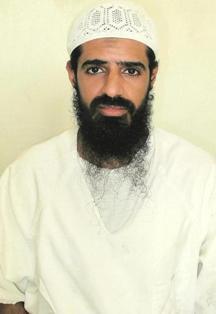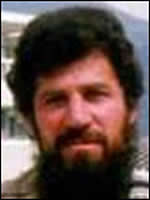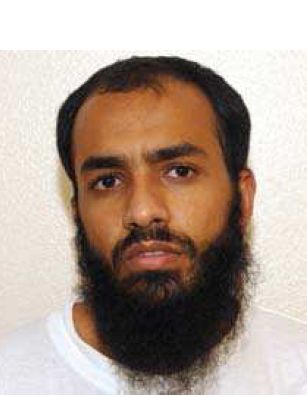Related Research Articles

Al-Qaeda is a pan-Islamist militant organization led by Sunni Jihadists who self-identify as a vanguard spearheading a global Islamist revolution to unite the Muslim world under a supra-national Islamic caliphate. Its membership is mostly composed of Arabs, but also includes people from other ethnic groups. Al-Qaeda has mounted attacks on civilian, economic and military targets of the US and its allies; such as the 1998 US embassy bombings, the USS Cole bombing and the September 11 attacks. The organization is designated as a terrorist group by NATO, the UN Security Council, the European Union, and various countries around the world.

The 'United Arab Emirates Armed Forces are the armed forces of the United Arab Emirates. They are also occasionally referred to as "Little Sparta", a nickname that was given by former United States Marine Corps General and Secretary of Defense James Mattis, due to their active and effective military role and power projection in the surrounding region compared to their relative size.

José Padilla, also known as Abdullah al-Muhajir or Muhajir Abdullah, is a United States citizen who was convicted in a federal court of aiding terrorists.

Ibrahim Ahmed Mahmoud al Qosi is a Sudanese militant and paymaster for al-Qaeda. Qosi was held from January 2002 in extrajudicial detention in the United States Guantanamo Bay detainment camps, in Cuba. His Guantanamo Internment Serial Number is 54.

Walid Muhammad Salih bin Mubarak bin Attash is a Yemeni prisoner held at the United States' Guantanamo Bay detention camp under terrorism-related charges and is suspected of playing a key role in the early stages of the 9/11 attacks. The Office of the Director of National Intelligence has described him as a "scion of a terrorist family". American prosecutors at the Guantanamo military commissions allege that he helped in the preparation of the 1998 East Africa Embassy bombings and the USS Cole bombing and acted as a bodyguard to Osama bin Laden, gaining himself the reputation of an "errand boy". He is formally charged with selecting and helping to train several of the hijackers of the September 11 attacks.

Mohammed Mani Ahmad al-Qahtani is a Saudi citizen who was detained as an al-Qaeda operative for 20 years in the United States's Guantanamo Bay detention camps in Cuba. Qahtani allegedly tried to enter the United States to take part in the September 11 attacks as the 20th hijacker and was due to be onboard United Airlines Flight 93 along with the four other hijackers. He was refused entry due to suspicions that he was trying to illegally immigrate. He was later captured in Afghanistan in the Battle of Tora Bora in December 2001.

The U.S. rationale for the Iraq War has faced heavy criticism from an array of popular and official sources both inside and outside the United States. Putting this controversy aside, both proponents and opponents of the invasion have also criticized the prosecution of the war effort along a number of lines. Most significantly, critics have assailed the U.S. and its allies for not devoting enough troops to the mission, not adequately planning for post-invasion Iraq, and for permitting and perpetrating widespread human rights abuses. As the war has progressed, critics have also railed against the high human and financial costs.
The Saddam–al-Qaeda conspiracy theory was based on false claims by the United States government alleging that a secretive relationship existed between Iraqi president Saddam Hussein and the Sunni pan-Islamist militant organization al-Qaeda between 1992 and 2003. U.S. president George W. Bush used it as a main reason for invading Iraq in 2003.
Ali Saleh Kahlah al-Marri is a citizen of Qatar who was sentenced to serve an 8-year sentence in a United States federal prison. He pleaded guilty to one count in a plea bargain after his case was transferred in 2009 to the federal court system.

The Al Qaeda Handbook 1677-T 1D is a computer file found by Police during a search of the Manchester home of Anas al-Liby in 2000. A translation has been provided by the American Federal Bureau of Investigation. Officials state that the document is a manual for how to wage war, and according to the American military, was written by Osama bin Laden's extremist group, al-Qaeda. However, the manual was likely written either by a member of Egyptian Islamic Jihad or al-Gama'a al-Islamiyya; in addition, the mentioned targets in the manual are the rulers of Arab countries, not the West.

Nashwan Abdulrazaq Abdulbaqi al-Tamir, better known as Abd al-Hadi al-Iraqi is an Iraqi member of Al-Qaeda who is now in United States custody at Guantanamo Bay detention camp in Cuba.
On November 13, 2001 U.S. President George W. Bush issued a Military Order titled Detention, Treatment, and Trial of Certain Non-Citizens in the War Against Terrorism.

Ali Hamza Ahmad Suliman al-Bahlul is a Yemeni citizen who has been held as an enemy combatant since 2002 in the United States Guantanamo Bay detention camp. He boycotted the Guantanamo Military Commissions, arguing that there was no legal basis for the military tribunals to judge him.

The war on terror, officially the Global War on Terrorism (GWOT), is a global counterterrorist military campaign initiated by the United States following the September 11 attacks and is the most recent global conflict spanning multiple wars. Some researchers and political scientists have argued that it replaced the Cold War.

In the years after the September 11, 2001 attack on the World Trade Center in New York City, Yemen became a key site for U.S. intelligence gathering and drone attacks on Al-Qaeda. According to the 2012 U.S. Global Leadership Report, 18% of Yemenis approved of U.S. leadership, with 59% disapproving and 23% uncertain. According to a February 2015 report from the Congressional Research Service, U.S. officials considered Al-Qaeda in the Arab Peninsula the Al-Qaeda affiliate "most likely to attempt transnational attacks against the United States."
For purposes of U.S. foreign policy, South Asia consists of Afghanistan, Bangladesh, Bhutan, India, the Maldives, Nepal, Pakistan, and Sri Lanka. The Assistant Secretary of State for South and Central Asian Affairs was Nisha Desai Biswal.

The September 11 attacks were carried out by 19 hijackers of the Islamist militant organization al-Qaeda. In the 1990s, al-Qaeda leader Osama bin Laden declared a holy war against the United States of America, and issued two fatāwā in 1996 and 1998. In the 1996 fatwā, he quoted the Sword Verse. In both of these fatāwā, bin Laden sharply criticized the financial contributions of the American government to the Saudi royal family as well as American military intervention in the Arab world.
Sufyian Ibn Muhammad Barhoumi is an Algerian man who was held in extrajudicial detention in the United States Guantanamo Bay detention camps, in Cuba. The Department of Defense reports that he was born on July 28, 1973, in Algiers, Algeria.

Muhammaed Yasir Ahmed Taher was a citizen of Yemen, who was held in extrajudicial detention in the United States's Guantanamo Bay detention camps, in Cuba. His Guantanamo Internment Serial Number was 679. American intelligence analysts estimate he was born in 1980, in Ibb, Yemen.
The Raid onYakla was a joint United States/United Arab Emirates military operation carried out on January 29, 2017 in al-Ghayil, a village in the Yakla area of the Al Bayda Governorate of central Yemen, during the Yemeni civil war. Prepared by U.S. counterterrorism officials under President Barack Obama, the mission was ultimately authorized by President Donald Trump nine days into his presidency. The mission's goal was to gather intelligence on al-Qaeda in the Arabian Peninsula, and to target the group's leader, Qasim al-Raymi. The raid was led by U.S. Central Command (CENTCOM) with resources from U.S. Special Operations Command (SOCOM), and the Central Intelligence Agency, as well as commandos from the United Arab Emirates Army.
References
- 1 2 Eric P. Schmitt, Mark Mazzetti (2008-11-09). "Secret Order Lets U.S. Raid Al Qaeda in Many Countries". The New York Times. Retrieved 2008-11-09.